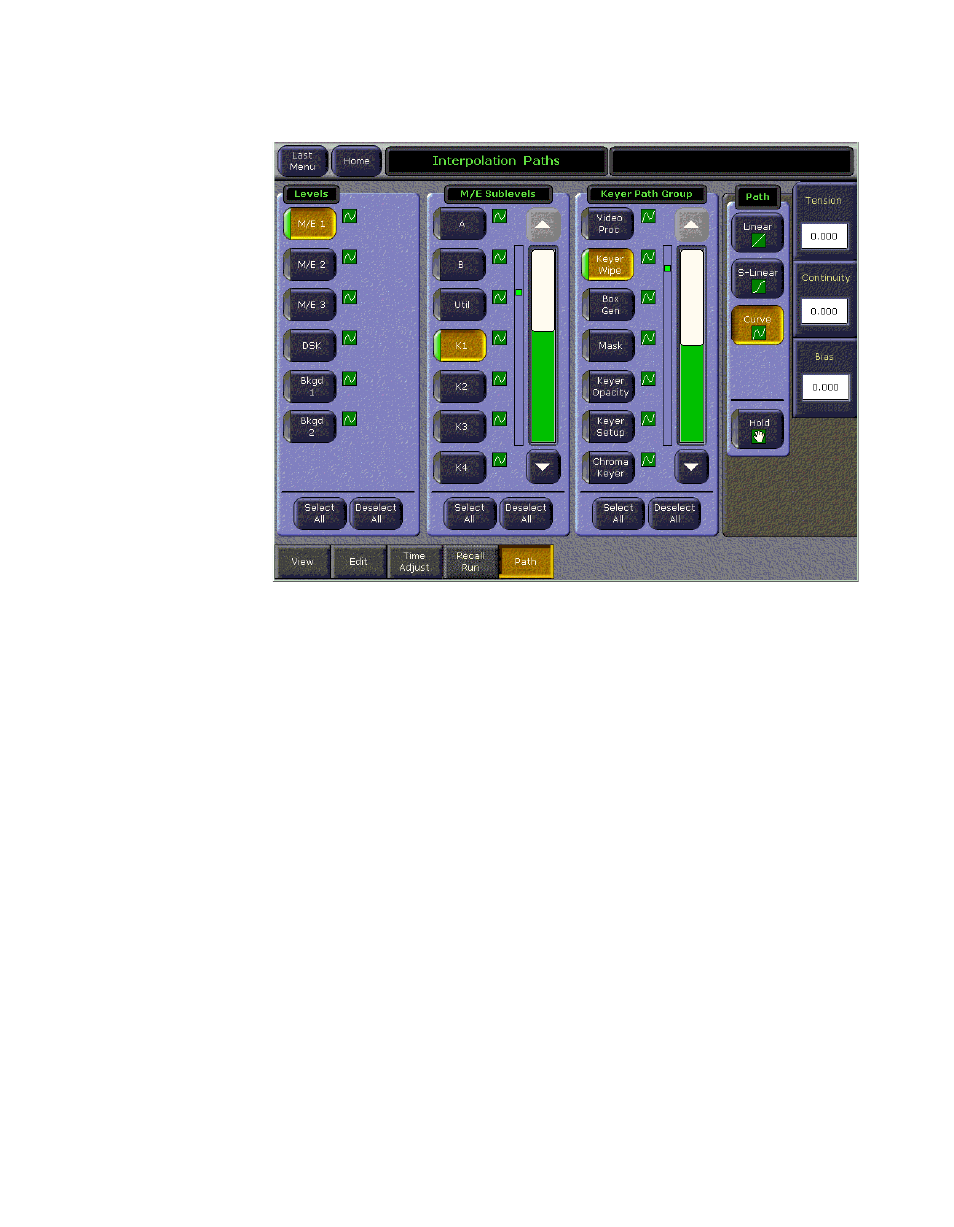General curve tips, Figure 156 – Grass Valley Kalypso User Manual V.15.0 User Manual
Page 193

Kalypso — User Manual
193
E-MEM Operations
Figure 156. Interpolation Paths Menu
3.
Choose the desired Path type (
S-Linear
,
Linear
, or
Curve
). If
Curve
is
selected, you can use the soft knobs or data pads to change the values
for
Tension
,
Continuity
, and
Bias
.
4.
Add the new values to a keyframe in the effect with
Insert
or
Modify
, or
Learn. You must change the keyframe, because current work buffer
values are overwritten during the running of an effect.
5.
Run the effect to see your changes.
General Curve Tips
Although adjusting the Curve path type Tension, Continuity, and Bias con-
trols can feel like a guessing game, here are some general tips to help you
build desired effects in a timely manner:
•
Tension in the minus direction (up to -1.0) creates bigger, looser curves.
•
Continuity at +1.0 is the same as S-Linear motion.
•
Continuity in the plus direction gives a bigger bounce, with +2.0 a good
value.
•
Bias in the plus direction makes the curve happen after the keyframe.
•
Bias in the minus direction makes the curve happen before the key-
frame.
- Kalypso User Manual V.12.0 Apr 10 2007 Kalypso Reference Manual V.11.0 Kalypso Reference Manual V.12.0 Mar 16 2006 Kalypso Reference Manual V.12.0 Apr 10 2007 Kalypso Classic Installation V.11.0 Kalypso Classic Installation V.12.0 Mar 13 2006 Kalypso Classic Installation V.12.0 Apr 10 2007 Kalypso User Manual V.11.0 Kalypso User Manual V.12.0 Mar 16 2006 Kalypso Reference Manual V.15.1 Kalypso User Manual V.15.1 HD/Duo Kalypso Installation V.15.0 HD/Duo Kalypso Installation V.11.0 HD/Duo Kalypso Installation V.15.1 Kalypso Reference Manual V.15.0 Video Switcher
